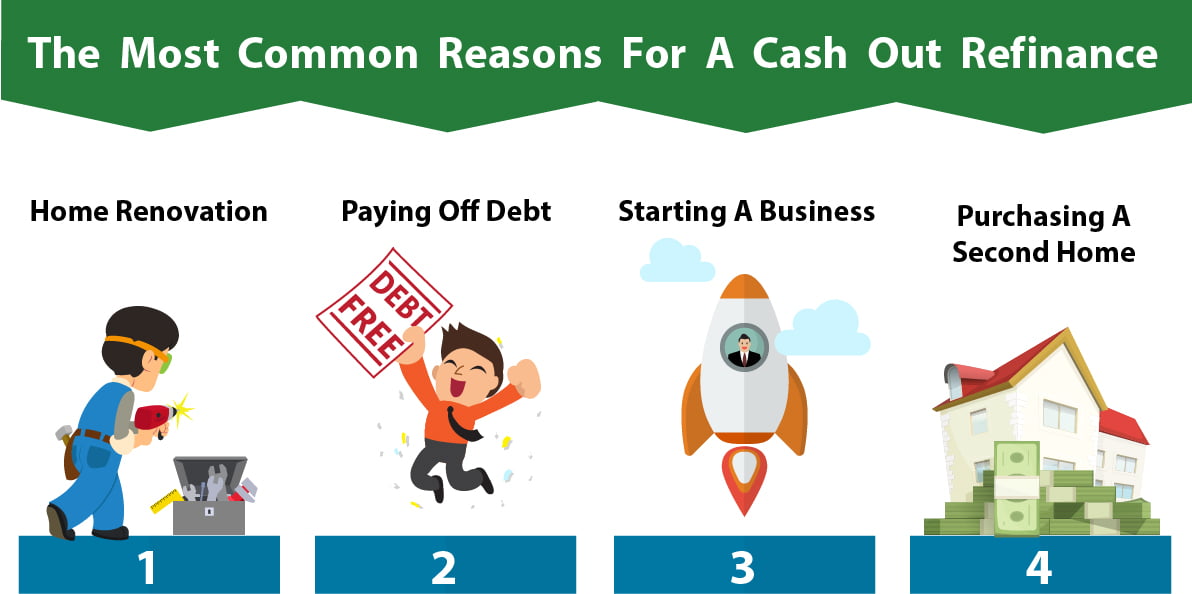Table of Content
Every lender operates at its own speed, but since the process to underwrite a home equity loan is similar to a standard mortgage, you can expect it to take about the same amount of time. Unlike with a home equity loan or HELOC, you typically will not have to put up any collateral to get a personal loan. Personal loans also usually take fewer than seven business days to get, while home equity loans or HELOCs might take weeks. Personal loans are more expensive, though, with APRs ranging from 6% to 36%. The best type of loan for home improvements is either a personal loan or a home equity loan, depending on things like the amount of funding you need and whether you're willing to risk your home as collateral.

The main benefit of using a home equity loan for debt consolidation is the potential for low interest rates and high loan amounts. However, there are risks that come with the process, as home equity loans are secured by the borrower's house. That means it's possible for a borrower to lose their house if they're unable to pay back their loan. The lowest home equity loan rates are typically only available to the most creditworthy borrowers, so take what steps you can to raise your credit score before you apply for a home equity loan.
Best Home Equity Loan Lenders and Rates of December 2022
This is why it’s extremely important to be realistic about how much money you can afford to borrow and make all your payments on time. Your mortgage payment is a combination of principal and interest payments. Your primary mortgage provider will detail how much you’ve paid in principal on your mortgage statements.

A score of at least 700 will make you eligible to receive a loan at lower interest rates. The payment amounts for a home equity loan are predictable as they remain the same because of a fixed interest rate during the life of a loan. The interest rate for a home equity loan is often lower than other loans, such as a personal loan or credit card.
However, a home equity loan may not be the best option if:
Equity loans are a low-cost way to finance large expenses, such as home remodeling or paying off debt. If you don’t want to take a big risk on the house, you could consider a cash-out refinance instead. Home equity loans are often used to cover large financial needs. For instance, you may need to take out a second mortgage to pay off your credit card bills.

Lenders prefer to see a DTI of 43% or less, though some may accept up to 50% in some cases. However, if you have bad credit, you’ll need a pretty low DTI to qualify for a home equity loan. If you are on time with your payments currently, but had trouble in the past, then approval could depend on how recent those missed payments are. If it’s been two years since your last missed payment, then a lender may not be concerned. Improve your Credit Score - As with any loan, you will need to have a certain credit score in order to qualify. According to Rocket Mortgage¹, you should have a score of 620 or higher for a home equity loan.
Home equity loan is a second mortgage secured by the value of your home
For buyers who already have an account with US Bank and want to avoid closing costs in their line of credit. The products, services, offers or advertisements that appear on this site are from third-party advertisers from which this website receives compensation. This compensation may impact how and where products, services, offers or advertisements appear on this site . This compensation may also impact which informational articles we choose to publish.
Its HELOC offerings also come with a rate-lock option for customers who want it. Home equity loans have loan amounts of $10,000 to $250,000 and HELOCs have line amounts ranging from $10,000 to $500,000. Credit score – your credit score will determine your eligibility to take out the loan and its interest rate.
However, you may still be able to qualify for a home equity loan with bad credit. Since home equity loans are secured by your property, meaning your home serves as collateral if you default on the loan, there’s less risk to the lender. And it can help if your other financial qualifications are strong. When applying for personal loans or mortgages, there are some things - like your credit score and income level - that lenders will look at. When applying for a home equity loan, lenders will look at additional information beyond these primary factors.
Offers customized online rate quotes with monthly payment estimates, including mortgage insurance, when applicable. Consider your home equity loan needs and then shop the lenders below — and if you want to consider other home equity products, read on for more about your options. The five Cs of credit are character, capacity, collateral, capital, and conditions. The five Cs of credit are important because lenders use them to set loan rates and terms. Since your home equity loan is secured by using your house as collateral, failure to pay your loan could result in your lender foreclosing on your house. Once you apply for your home equity loan, your lender may order an appraisal to determine the current market value of your property.
However, a home equity loan is a fixed amount of money paid out in one lump sum. Homeowners repay the loan in fixed installments over a predetermined period. Home equity loans are typically fixed-rate while HELOCs are variable. Home Insight combines a home affordability analysis, a monthly payment estimator that accounts for insurance and taxes and the ability to search for available home listings. It also connects unique budgets, real-time rates and loan products with a real estate listings search to help prospective home buyers better understand how much house they can afford. Home equity loans are a good choice if you need funds to do renovations or pay off credit card debts.
Some of the most common expenses you’ll encounter are property appraisal, title search, credit report, and flood evaluation fees. Some lenders may also require private mortgage insurance and will charge a prepayment penalty for paying off the loan early. Discover also offers personalized help from loan officers over the phone to help you choose the right lending product and answer any questions you may have. Lenders look for borrowers who are lower risk, so they set these requirements for home equity loans. When applying for a home equity loan, you must show that you can repay your debts by meeting standards for credit scores, home equity levels, and more. Before applying for a loan, review your monthly expenses and calculate whether you can afford another loan payment.
You can draw what you need against the line of credit, pay interest only on what you’ve used and then pay it back. HELOCs typically have terms that allow you to repeat that process over a 10-year period. Borrowers typically pay only interest during the draw period but can pay down the principal too, although it’s not required. This is one of the least talked about uses of home equity loans, but one of the most beneficial ones. If you’ve taken out a variable interest rate loan, you can use your equity to pay it off and turn it into a predictable, fixed-rate loan.

Home equity lines of credit typically have lower interest rates than unsecured personal loans or credit cards, making them a good choice for many borrowers. You can use the money for any purpose, such as home improvements or debt consolidation. KeyBank HELOCs come with an annual fee of $50, but no closing costs unless your closing is performed by a closing agent. KeyBank offers a 0.25% rate discount for clients who have eligible checking and savings accounts with KeyBank.
For home equity loans, you’ll need a score of at least 620 to qualify. Some institutions may accept a lower score under certain conditions. However, Cotés says that in order to get the lowest rates, you’ll need a score of 740 or more. CLTV – the combined loan-to-value ratio, or CLTV, is calculated by combining your mortgage balance with the amount you wish to borrow and dividing it by your home’s current appraised value. For example, if your home is worth $300,000, you still owe $100,000, and wish to borrow $50,000, your CLTV would be 0.50 or 50%. Most lenders will not approve a home equity loan if the CLTV exceeds 80%, although there are some exceptions.


No comments:
Post a Comment